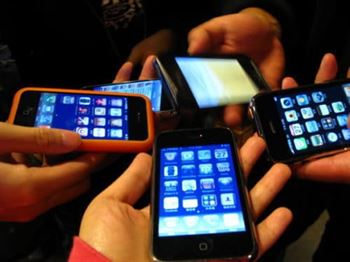Sitting in silence sounds really nice, especially after a two-hour class and a work shift that felt like 16 hours compressed into four.
Surprisingly, or maybe not so surprisingly, silence is just about impossible in this generation. Whether by the faded noise of traffic or a voice in the room next door, it’s inevitable that silence will be disturbed by something. It is hard to recall the last time there was a moment of complete silence without anything to stimulate the human mind. Sitting in silence is unrealistic in 2017, but that doesn’t mean that we can’t be by ourselves without having our cell phone’s light flashing in our eyes or music blasting through headphones—or does it?
College students are more often than not sitting in dark, crowded classrooms glaring at a projector screen while halfheartedly listening to a professor. While this becomes an accepted educational standard throughout high school, it is clear that there may be something wrong with it. Personally, I experience one migraine a day, and often carry eye drops to classes that force me to idly stare at a screen.
This continues outside of the classroom. Nearly every out-of-class assignment is completed with the use of technology. After classes, many students spend their time in the library, a place full of books and life, yet they must succumb to the experience of learning through a device. Students communicate with professors through email, and find internship opportunities through websites and online ads.
The infestation of technology does not stop there. It has infiltrated nearly everything. Protesting has succumbed to Twitter posts, and newspapers have been reduced to daily emails. Even our reactions to our friends’ and families’ big news have been digitized. We often converse with loved ones through a screen.
When professors complain about college students’ inability to communicate efficiently, they seem to forget the technological age that has engulfed not just young people, but nearly everyone. A gadget is required in today’s day and age. Without a device, it has become difficult to learn properly, love properly or exist properly according to society’s standards. Our future kids will not just be bodies and souls to tend to and nurture. They will be born with devices strapped to their palms as crutches. While technology can benefit society, it has to be accepted that this is no longer the case.
We are technology, and wherever we go, for the rest of our lives, this device must follow us for efficiency, integrity and love to be delivered and received. Existing, listening, absorbing and hearing silence are social norms that are long gone.



